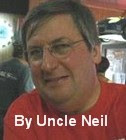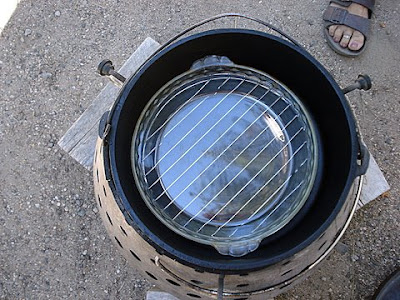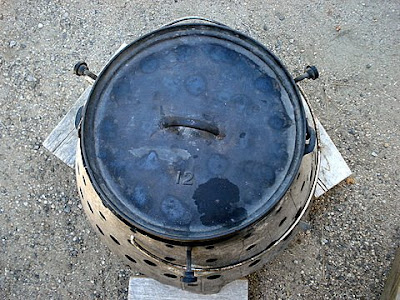The first time you try to use a Dutch Oven you burn the crap out of your food!!! Sound familar? It happens to everyone.
Here is a handy chart to help you get past that burning food stage:
#12 Dutch Oven
The charcoal numbers are written 15/9. The first number indicates the number of coals placed on the Dutch Oven lid, the second number is the number of charcoal coals on the bottom.
325 degrees ................15/9
350 degrees ................16/10
375 degrees ................17/11
400 degrees............... 18/12
#10 Dutch Oven
325 degrees......... 13/6
350 degrees......... 14/7
375 degrees......... 16/7
400 degees.......... 17/8
As you can tell from the chart, the number of coals on the bottom is the culprit in burning your food. There are a number of tricks I use to better control the bottom heat.
* 2/3 baking rule.
Click here to learn this trick.
* Elevate the Dutch Oven up higher off the hot charcoals, and extend your cooking time. Before I use the Volcano Stove to accomplish this, I used three small rocks to set my Dutch Oven on to get it up off the bottom charcoals.
* Use a trivot, this keeps your food off the bottom of the oven and prevents burning. For example when we do a beef roast we sear the roast on both sides directly in the bottom of the hot Dutch Oven. After that step, we lay the roast on the trivot and add our potatoes, carrots, onions, etc.
* That brings me to my next trick. Use two cups of liquid when cooking. If we're doing a beef roast we use two cups of AuJu, or dry Lipton onion soup. If it's chicken, we mix up two cups of chicken broth. You get the picture?
* My next dirty trick saves a lot of clean up work and controls burnt food like a dream.
When baking a pie I use the trivot and a glass pyrex pie dish. Now if I'm not sure about the bottom of the pie crust, I lift it out and take a look! Oh, you'll love cleaning up the Dutch Oven after using this pie baking trick.
* The same principal works for this pan we use in the oven on the trivot. The round glass dish works great for checking the bottom of the food. We love to bake bread pudding in this one.

This next pan is effectionly called "The Dog Dish". We use this pan because we are able to surround the pan with baked potates to cook at the same time to go along with our meal. We even have a favorite recipe called "Dog Dish Meatloaf" that we use this pan for. I'll try to include this recipe in a future post.

* Today's last tip is to take your time, and enjoy the cooking experience with your Dutch Oven and a cold beer.

"Sunny & 80"


















































